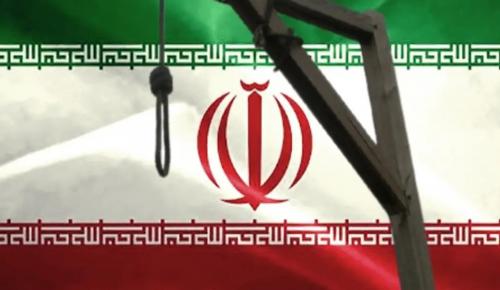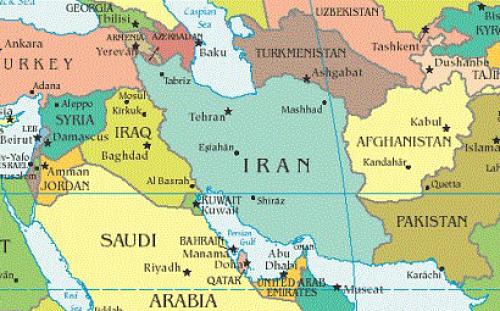23 February 2023 :
RESOLUTION ON MORATORIUM ON EXECUTIONS ADOPTED BY UNGA IN 2022
Seventy-seventh session
Resolution adopted by the General Assembly on 15 December 2022 by 125 votes in favour, 37 against and 22 abstentions.
77/222 Moratorium on the use of the death penalty
The General Assembly,
Guided by the purposes and principles contained in the Charter of the United Nations,
Reaffirming the Universal Declaration of Human Rights, the International Covenant on Civil and Political Rights and the Convention on the Rights of the Child,
Recalling the Second Optional Protocol to the International Covenant on Civil and Political Rights, aiming at the abolition of the death penalty, and in this regard welcoming the increasing number of accessions to and ratifications of the Second Optional Protocol,
Recalling also its resolutions 62/149 of 18 December 2007, 63/168 of 18 December 2008, 65/206 of 21 December 2010, 67/176 of 20 December 2012, 69/186 of 18 December 2014, 71/187 of 19 December 2016, 73/175 of 17 December 2018 and 75/183 of 16 December 2020 on the question of a moratorium on the use of the death penalty, in which the General Assembly called upon States that still maintain the death penalty to establish a moratorium on executions with a view to abolishing it,
Recalling further all relevant decisions and resolutions of the Human Rights Council, the most recent of which was resolution 48/9 of 8 October 2021
Mindful that any miscarriage or failure of justice in the implementation of the death penalty is irreversible and irreparable,
Convinced that a moratorium on the use of the death penalty contributes to respect for human dignity and to the enhancement and progressive development of human rights, and considering that there is no conclusive evidence of the deterrent value of the death penalty,
Noting ongoing local and national debates and regional initiatives on the death penalty, as well as the readiness of an increasing number of Member States to make available to the public information on the use of the death penalty, and also, in this regard, the decision by the Human Rights Council in its resolution 26/2 of 26 June 2014 to convene biennial high-level panel discussions in order to further exchange views on the question of the death penalty,
Recognizing the role of national human rights institutions and civil society in contributing to ongoing local and national debates and regional initiatives on the death penalty,
Noting the long-term reductions in reported executions, as well as the increase in commutations of death sentences, and welcoming all measures taken by States towards limiting the application of the death penalty,
Emphasizing the need to ensure that persons facing the death penalty have access to justice without discrimination of any kind, including access to legal counsel, that they are treated with humanity and with respect for their inherent dignity and in compliance with their rights under international human rights law, and to improve conditions in prisons in accordance with international standards, such as the United Nations Standard Minimum Rules for the Treatment of Prisoners (the Nelson Mandela Rules),
Noting with deep concern that, as shown in recent reports of the Secretary General, frequently, poor and economically vulnerable persons, foreign nationals, persons exercising their human rights and persons belonging to religious or ethnic minorities are disproportionately represented among those sentenced to the death penalty and the discriminatory application of the death penalty, to women,
Noting that transparent reporting and access to information regarding the use of the death penalty and criminal prosecutions can expose discriminatory practices or impact in the imposition and application of the death penalty, and recalling that, particularly in cases of capital punishment, States must guarantee transparency in order to ensure that all persons benefit from due process guarantees,
Noting also the negative impact that the imposition of the death penalty has on the rights of children and youth whose parents or parental caregivers face the death penalty, as well as other family members,
Noting further the technical cooperation among Member States, as well as the role of relevant United Nations entities and human rights mechanisms, in supporting State efforts to establish moratoriums on the death penalty,
Bearing in mind the work of the treaty bodies and special procedure mandate holders that have addressed human rights issues related to the death penalty within the framework of their respective mandates,
Welcoming the considerable movement towards the abolition of the death penalty globally and the fact that many States with different legal systems, traditions, cultures and religious backgrounds are applying a moratorium, including long standing moratoriums, either in law or in practice, on the use of the death penalty,
- Reaffirms the sovereign right of all countries to develop their own legal systems, including determining appropriate legal penalties, in accordance with their international law obligations;
- Expresses its deep concern about the continued application of the death penalty;
- Welcomes the report of the Secretary-General on the implementation of resolution 75/183 and the recommendations contained therein;
- Also welcomes the steps taken by some States to reduce the number of offences for which the death penalty may be imposed, as well as steps taken to limit its application, including by commuting death sentences;
- Further welcomes initiatives and political leadership encouraging national discussions and debates on the possibility of moving away from capital punishment through domestic decision-making;
- Welcomes the decisions made by an increasing number of States from all regions, at all levels of government, to apply a moratorium on executions, followed in many cases by the abolition of the death penalty;
- Calls upon all States:
(a) To respect international standards that provide safeguards guaranteeing protection of the rights of those facing the death penalty, in particular the minimum standards, as set out in the annex to Economic and Social Council resolution 1984/50 of 25 May 1984, as well as to provide the Secretary-General with information in this regard;
(b) To comply with their obligations under article 36 of the 1963 Vienna Convention on Consular Relations, particularly the obligation of a receiving State to, without delay, inform a sending State that a national of that State has been arrested or committed to prison or to custody pending trial or is detained in any other manner, if the person concerned so requests; and the obligation of a receiving State to inform the person concerned without delay of their rights under article 36;
(c) To make available relevant information, disaggregated by sex, age, disability, nationality and race, as applicable, and other applicable criteria, with regard to their use of the death penalty, inter alia, the number of persons sentenced to death, the number of persons on death row and the location of their detention, and the number of executions carried out, the number of death sentences reversed or commuted on appeal or in which amnesty or pardon has been granted, and according to which procedure, as well as information on any scheduled execution, which can contribute to possible informed and transparent national and international debates, including on the obligations of States pertaining to the use of the death penalty;
(d) To ensure that any trial leading to the imposition of the death penalty complies with internationally recognized fair trial guarantees, such as a fair and public trial and the right to legal assistance, including adequate access to legal counsel at every stage of the proceedings, without discrimination of any kind, including for persons belonging to minorities and foreign nationals, bearing in mind that namely failure to respect fair trial guarantees in proceedings resulting in the imposition of the death penalty could constitute a violation of the right to life;
(e) To progressively restrict the use of the death penalty and not to impose capital punishment for offences committed by persons below 18 years of age or whose age above 18 years at the time of the commission of the crime cannot be accurately determined, on pregnant women or on persons with mental or intellectual disabilities;
(f) To reduce the number of offences for which the death penalty may be imposed, including by considering removing the mandatory application of the death penalty;
(g) To ensure that those facing the death penalty can exercise their right to apply for pardon or commutation of their death sentence by ensuring that clemency procedures are fair and transparent and that prompt information is provided at all stages of the process;
(h) To ensure that children whose parents or parental caregivers are on death row, the inmates themselves, their families and their legal representatives are provided, in advance, with adequate information about the location of their detention, a pending execution, its date, time and location, to allow a last visit or communication with the convicted person, the return of the body to the family for burial or to inform on where the body is located, unless this is not in the best interests of the child;
(i) To provide access for persons sentenced to death to information related to the method of execution, in particular the precise procedures to be followed;
(j) To ensure that the death penalty is not applied on the basis of discriminatory laws, including laws which target individuals for exercising their human rights, or as a result of discriminatory or arbitrary application of the law;
(k) To improve conditions in detention for those on trial for capital crimes or on death row, by ensuring that all prisoners are treated with humanity and with respect for their inherent dignity, and complying with international standards, such as the United Nations Standard Minimum Rules for the Treatment of Prisoners (the Nelson Mandela Rules), in particular by evaluating, promoting, protecting and improving their physical and mental health;
(l) To establish a moratorium on executions with a view to abolishing the death penalty;
- Calls upon States which have abolished the death penalty not to reintroduce it, and encourages them to share their experience in this regard;
- Encourages States which have a moratorium to maintain it and to share their experience in this regard;
- Calls upon States that have not yet done so to consider acceding to or ratifying the Second Optional Protocol to the International Covenant on Civil and Political Rights, aiming at the abolition of the death penalty;
- Requests the Secretary-General to report to the General Assembly at its seventy-ninth session on the implementation of the present resolution;
- Decides to continue consideration of the matter at its seventy-ninth session under the item entitled “Promotion and protection of human rights”.
54th plenary meeting
15 December 2022








